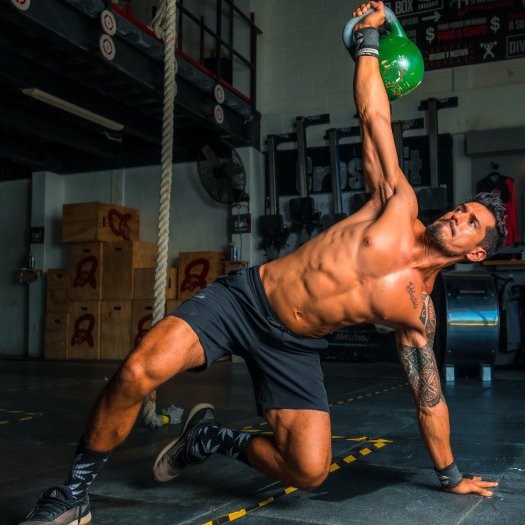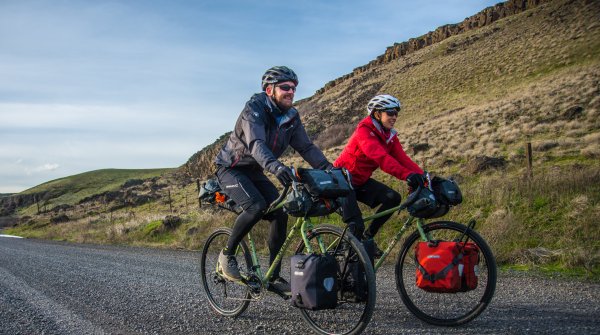Our top vegan athletes include:
- Timo Hildebrand (Soccer)
- Venus Williams (Tennis)
- Novak Djokovic (Tennis)
- Lewis Hamilton (F1)
- Serena Williams (Tennis)
- Arnold Schwarzenegger (Bodybuilding)
- Lawrence Okolie (Boxing)
- Fiona Oakes (Running)
- Andreas Kraniotakes (MMA)
- Carl Lewis (Track & Field)
- Patrik Baboumian (Power Sports)
- Benedikt Höwedes (Soccer)
- Dirk Nowitzki (Basketball)
- Johanna Jahnke (Rugby)
- Kendrick Farris (Weightlifting)
This trend has also arrived in the sports world. More and more professionals live vegan and oppose the stereotype that vegan nutrition does not give strength or is not a basis for sports. Vegan athletes are also role models for young people, because their professional status gives them great responsibility within society.
An environmentally friendly lifestyle has many faces. Whether it's less plastic waste, textiles made of artificial leather or doing without the car for weekly shopping. But one trend in particular has stood out in recent years: veganism. The market is creating more and more alternatives to animal products, making this form of nutrition increasingly interesting, especially for young people. This creates more scope for innovation and benefits the environment.
You've probably heard of one or two of the vegan athletes we're featuring below. We'll give you insights into their eating style, why they choose plant-based foods, and how some even turn their lifestyle into innovative business ideas.
The German ex-footballer is still remembered by many as the goalkeeper of VfB Stuttgart, mainly because of the championship title in 2007. In recent months, Timo Hildebrand gained media attention for something else: his vegan restaurant in Stuttgart.
The benefits of plant-based nutrition recognized Timo Hildebrand. He claims that he is not completely a vegan athlete and that he sometimes eats fish. However, the majority of his diet is made up of plant-based foods and they give him more energy for the day.
One of the vegan athletes Venus Williams lives for vegan food. The Wimbledon winner has been following a vegan diet for more than ten years. The reason for this was her autoimmune disease Sjögren's syndrome, which causes regular joint pain and fatigue. At first, the condition seemed to jeopardize her career, but switching to a vegan diet changed that.
Her diet was so effective that she started her own vegan business and invested in other business ideas as well. The success of her diet became so publicized in the sports world that other athletes regularly approached her asking for vegan diet tips.
Venus Williams maintains an approach that does not exclude unhealthy food. She likes to eat healthy, but can't resist treats either. She thus shows that a vegan lifestyle can also be fun and that no one has to give up their favorite dishes.
The tennis world star eats exclusively vegan except for a few meals. In his case, it is also due to health reasons - Novak Djokovic does not tolerate gluten and struggled with respiratory problems as a child. By switching to a largely plant-based diet, he was able to resolve these issues and performs at full capacity as a tennis player.
The world star likes to share knowledge and taste preferences with others, which is why he has already published a book and invested in opening several restaurants. The most famous of them is in Monaco, where there are mainly vegan dishes to choose from.
Racing driver Lewis Hamilton switched to a plant-based diet in 2017 and describes this as one of the factors behind his success on the race track. Although he misses the odd animal product now and then, he now even regrets not having started a vegan diet much earlier. Lewis Hamilton has also opened his own restaurant called "Neat Burger", where guests are served exclusively vegan food.
Tennis icon Serena Williams is also one of the vegan athletes and eats a vegan diet mainly during her rigorous training phase. In the off-season, however, the athlete loosens up her diet and treats herself to a non-vegan cheat or two now and then.
Her decision to eat a vegan diet was inspired by her sister Venus Williams, who is also a top tennis athlete.
Austrian bodybuilding legend Arnold Schwarzenegger has been eating a predominantly vegan diet for several years. Above all, his change of diet was about lowering cholesterol levels.
The seven-time Mr. Olympia speaks the advantages of a vegan diet for the health again and again publicly, addressed to show young athletes that muscle building can also work without kilograms of meat and Co.
He said that he feels the renunciation of animal products thereby "altogether healthier and younger" and he could lower his LDL cholesterol level.
By his own estimates, he avoids animal products 80% of the time in his daily life. He does, however, make the occasional exception for a steak or Wiener schnitzel at home. By the way, this is also his key to a balanced diet. If you don't forbid yourself anything and allow yourself something every now and then, you'll manage to stick it out in the long term and achieve effective success.
Lawrence Okolie is an internationally successful professional boxer and one of the best vegan athletes. In 2018, he held the Commonwealth cruiserweight title. The following year he won the British and European titles in the same category. The world title followed in 2020.
Lawrence stopped eating meat while still an amateur and wanted to try veganism after learning about it from friends. Occasionally, however, he makes an exception for non-vegan chocolate.
Although veganism has become increasingly trendy, especially in recent years, Fiona Oakes decided to be one of the vegan athletes and started following a plant-based diet back in the 1970s. The runner has felt a close connection to the animal world since childhood and decided early on that she no longer wanted to consume animal products. At that time, there were few ready-made products and most of the food was home-prepared. Today, there is much more choice in supermarkets, and there are already countless products designed specifically for vegans. However, Fiona Oakes consciously tries to get her nutrients from unprocessed whole foods. These give her the energy she needs for a stressful daily routine and marathon preparation.
The MMA fighter, active since 2005, eats exclusively vegan and is proof that a daily requirement of 8,000 calories is possible without the intake of animal products.
However, Andreas Kraniotakes follows his diet not only because of moral principles, but because he feels better. He himself admitted that he would continue to eat meat if he had no energy, but this is not the case - he still performs the same and his body even regenerates faster. Therefore, he continues to be faithful to his diet.
Carl Lewis is also one of the best vegan athletes. The former track and field athlete and nine-time Olympic gold medal winner has been eating a purely plant-based diet since 1990. At that time, a vegan diet was much more difficult to implement because there were fewer alternatives on the market. But that didn't stop the athlete from achieving top performances, as he set a previously unattained record in the long jump in 1984. Many saw this as the highlight of his career, but in 1991, a year after his change in diet, he set a new world record in the 100-meter dash, which Carl Lewis attributes to his plant-based lifestyle.
The former strongest man in Germany and five-time world championship participant in power sports is one of the best-known vegan athletes and has been eating exclusively a plant-based diet since 2011. Patrik Baboumian refutes the claim of many that vegan nutrition and power sports do not go together, because he himself feels really good and his performance has not decreased. In an interview with Bild.de, the top vegan athlete even said that he is less overacidified and no longer has joint pain.
The former professional soccer player and world champion (2014) has been living vegan for about four years. He cites his series of injuries as the main reason, as Höwedes was one of the footballers who frequently had physical problems. Before his move to Lokomotive Moscow in 2018, he was again struck by injury misfortune and that was the decisive thought-provoking impulse for him to switch to a vegan diet.
"I was sometimes on the treatment bench for longer periods of time than I was on the pitch. That has changed with the change of diet" - He explained at the time to the Augsburg General.
In 2019, the former German professional basketball player ended his career and shortly thereafter decided to switch to a vegan lifestyle. He had already partially dispensed with meat before, and even completely eliminated dairy products from his diet. In addition to health aspects, Dirk Nowitzki also decided to take this step because of animal welfare.
At the age of 17, even before her career as a rugby player, the German athlete was already relying on a purely plant-based diet and thus ushered in a long history of success in two sports. First, she went through a successful career as a rugby player, winning ten national titles with FC St. Pauli, among others. In 2014, she started her second career as a cyclist. She has remained true to veganism throughout her career.
Rather unknown in this country, but a star in weightlifting. Kendrick Farris has been vegan since 2014 and is proof that a plant-based diet and top performance in weightlifting are not mutually exclusive. In 2016, two years after changing his diet, he broke the former world record at the Olympic qualifiers and lifted 377 kilograms.
why do people fail on a vegan diet while others succeed? There are only a few of the vegan athletes who have given up their plant-based diet so far. Nevertheless, one prominent athlete is included in this list, namely boxing legend Mike Tyson. In 2010, he started his vegan diet and lost 50 kilograms in a short time. According to Mike Tyson's statements, he felt much better and made health progress. Since 2020, however, he has been eating meat again. But the reason is not deficiency symptoms or health problems - he wanted to regain his old strength and gain weight, he explained in a podcast.
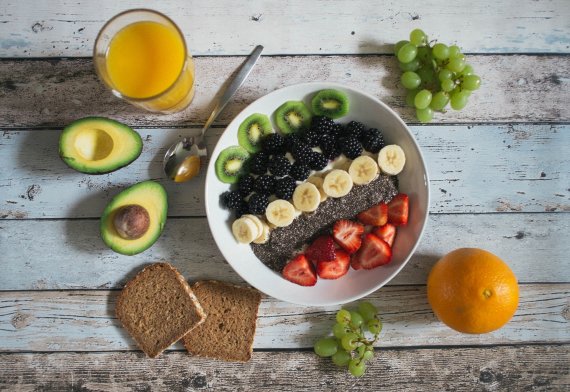
The topic of veganism has since also become a contentious issue, especially between proponents of plant-based diets and meat eaters. In principle, a quick change in diet is not recommended without thorough research, because there is a risk that the body is not supplied with important nutrients. Amino acids in particular are a point of contention, because vegan Protein-alternatives do not have the same biological valency as beef, for example. Here high-quality preparations must come, in order to create a balance.
In principle, the vegan way of life is healthy, if one nourishes oneself from fresh food. Fruits and vegetables supply us as main components of a healthy nutrition with important vitamins, nuts are perfect fat suppliers and Veganer do besides without the high quantities of salt in meat and sausage products. Many see the protein supply with a vegan nutrition problematically, but well informed there are also here no difficulties - Tofu, leguminous plants, beans and peas offer for example good alternatives.
Athletes in particular should find out in advance about good sources of protein and supplements for amino acid and vitamin intake. In the performance area, high-quality proteins in combination with amino acids and B vitamins are important to provide the body with ideal nutrition. Once the foundation is laid, nothing stands in the way of increased performance - vegan food is digested more quickly and the midday slump is absent. Due to the omission of fatigue, sleep is better at night and thus also the regeneration after sports.
Many fail at a vegan way of life because they make too radical changes and renounce the consumption of animal products from one day to the next. Slowly adapting your diet is the key to success, according to Arnold Schwarzenegger. The Austrian bodybuilding legend and former governor of California does not live completely vegan, but has changed his diet to largely plant-based alternatives.
Developments in professional sports have shown that it is not the vegan diet that is the problem, but the eating habits. Many vegan athletes are proof that a purely plant-based diet and top performance go hand in hand.
So what does that mean? Grabbing your grocery bag, buying vegan food and changing your diet without sound research is not recommended. Above all, raw food diets are not advisable because the body lacks essential nutrients as a result. Those who pursue the goal of switching to a vegan diet are best off dealing with the basic principles and which nutrients they need as a first step.
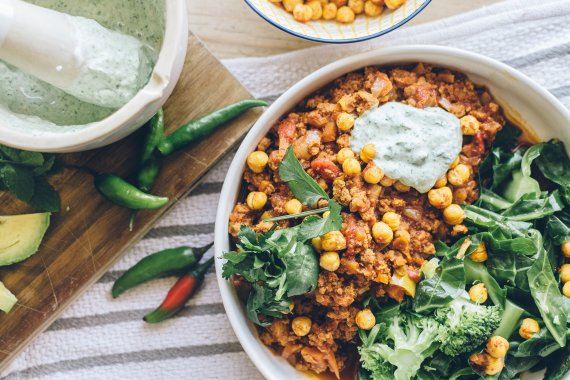
Finally, we answer frequently asked questions about vegan athletes.
A purely plant-based diet can support muscle building very well. The only important thing is to make sure that you have a sufficient protein intake in your vegan diet.
The strongest man in the world is Lithuanian Žydrūnas Savickas and he does not live vegan. But the one who has been living exclusively vegan since 2011 is Germany's former strongest athlete, Patrik Baboumian.
The Argentine soccer player does not live a completely vegetarian lifestyle, but he largely avoids meat and relies on a plant-based diet, as do many other soccer players.
There are many reasons why people are failing on a vegan diet. The success or failure of individuals on a vegan diet depends on several factors. It can be the lack of planning and knowledge, inadequate food choices, personal preferences and taste, social and environmental factors, and health conditions.
Also, you shouldn't forget that what works for one person may not work for another.
Who are some famous vegan athletes?
Some famous vegan athletes areTimo Hildebrand, Venus Williams, Novak Djokovic, Lewis Hamilton, Serena Williams, Arnold Schwarzenegger, Lawrence Okolie, Fiona Oakes, Andreas Kraniotakes, Carl Lewis, Patrik Baboumian, Benedikt Höwedes, Dirk Nowitzki, Johanna Jahnke, and Kendrick Farris.
What are the reasons some athletes choose a vegan diet?
Athletes may choose a vegan diet for various reasons, including health benefits, improved performance, ethical considerations, and environmental concerns.
Are there any vegan athletes who occasionally consume non-vegan food?
Yes, some vegan athletes, like Venus Williams and Serena Williams, may occasionally consume non-vegan food during specific phases or situations.
How can athletes ensure they get enough protein on a vegan diet?
Athletes can ensure they get enough protein on a vegan diet by including plant-based protein sources like tofu, legumes, beans, peas, and supplements for amino acid and vitamin intake.
Why do some people fail on a vegan diet while others succeed, according to the text?
People may fail on a vegan diet due to factors such as lack of planning and knowledge, inadequate food choices, personal preferences, social and environmental factors, and health conditions. Success on a vegan diet depends on individual circumstances.
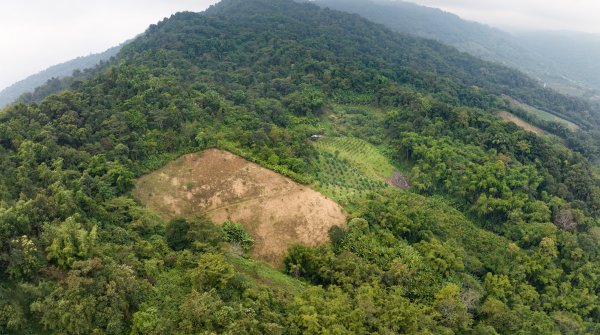 SustainabilityBiodiversity: How the Sports Industry Can Contribute
SustainabilityBiodiversity: How the Sports Industry Can Contribute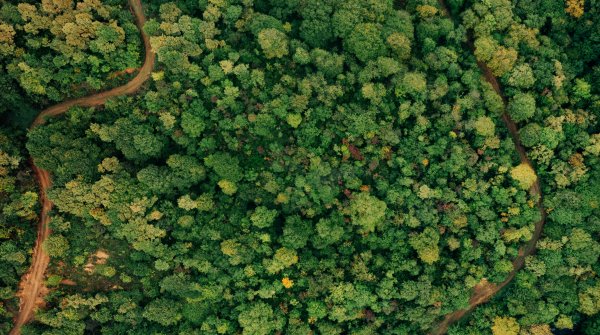 SustainabilityThese 5 EU rules are changing the sports industry forever
SustainabilityThese 5 EU rules are changing the sports industry forever
- Awards
- Mountain sports
- Bike
- Fitness
- Health
- ISPO Munich
- Running
- Brands
- Sustainability
- Olympia
- OutDoor
- Promotion
- Sports Business
- Textrends
- Triathlon
- Water sports
- Winter sports
- eSports
- SportsTech
- OutDoor by ISPO
- Heroes
- Transformation
- Sport Fashion
- Urban Culture
- Challenges of a CEO
- Trade fairs
- Sports
- Find the Balance
- Product reviews
- Newsletter Exclusive Area
- Magazine
